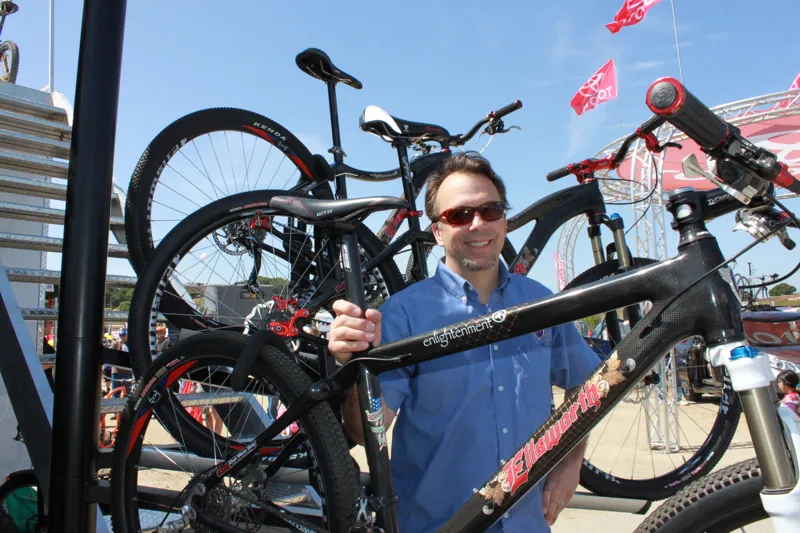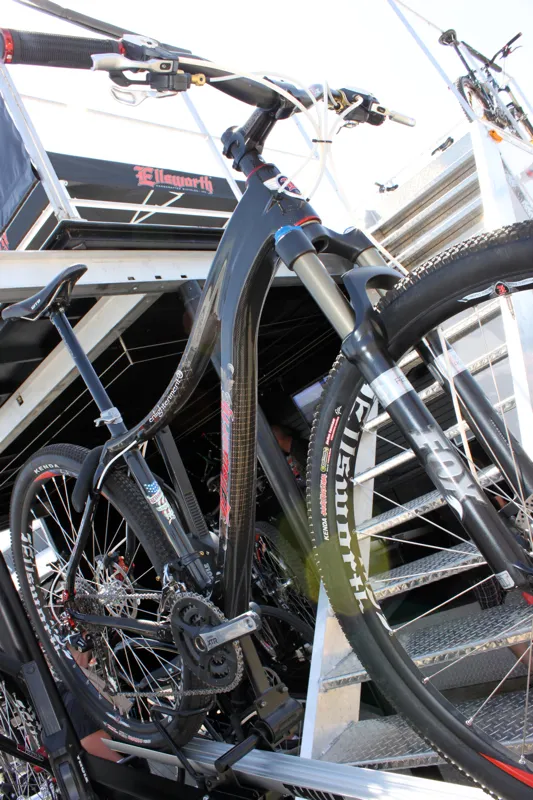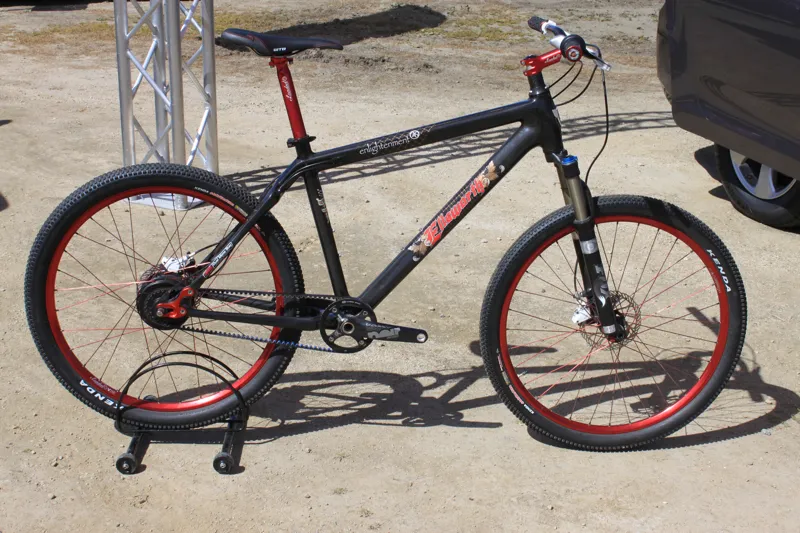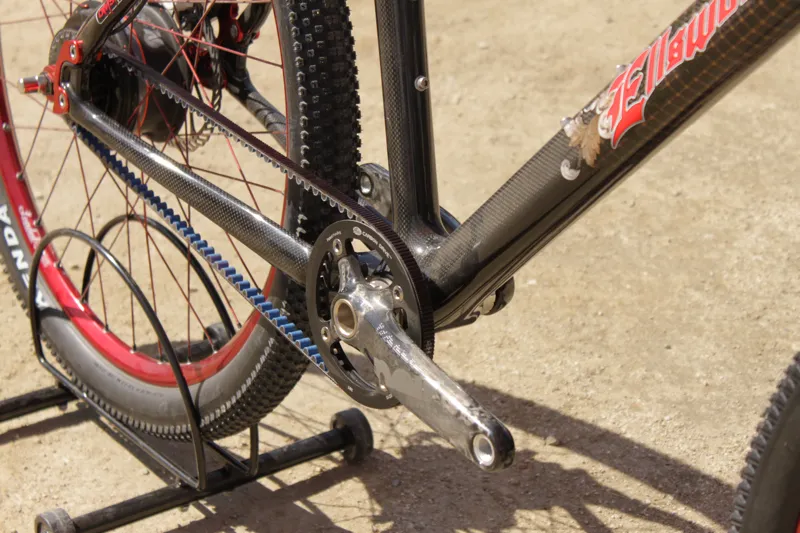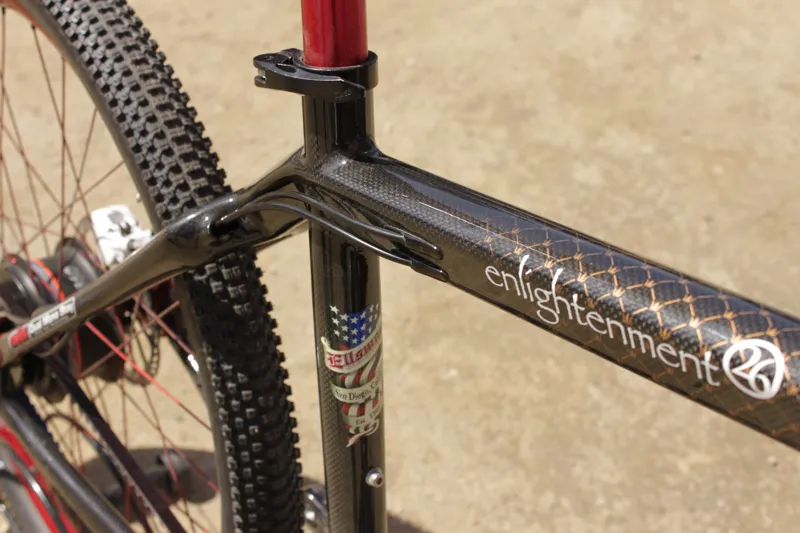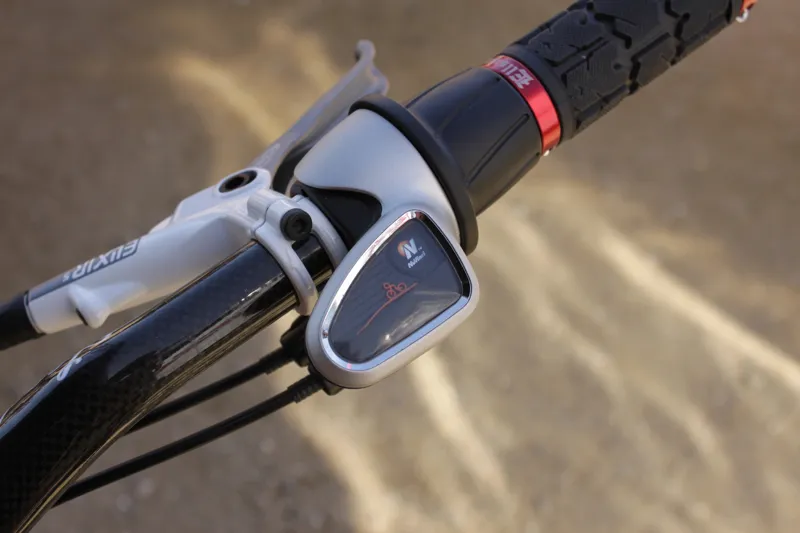Tony Ellsworth, the founder of the eponymous company, has a passion for designing bikes, but it pales in comparison to the passion of the people who buy them.
BikeRadar was able to sneak out a few words with Ellsworth in-between a constant barrage of questions and compliments from his die-hard ridership.
At Sea Otter, Ellsworth had his full range of carbon fibre Enlightenment hardtails on hand, in both 26in and 29in varieties. He explained his appreciation for the creativity that the medium allows designers, but also the difficulty of finding a manufacturer with the same ideals overseas, where all of the latest carbon technology resides.
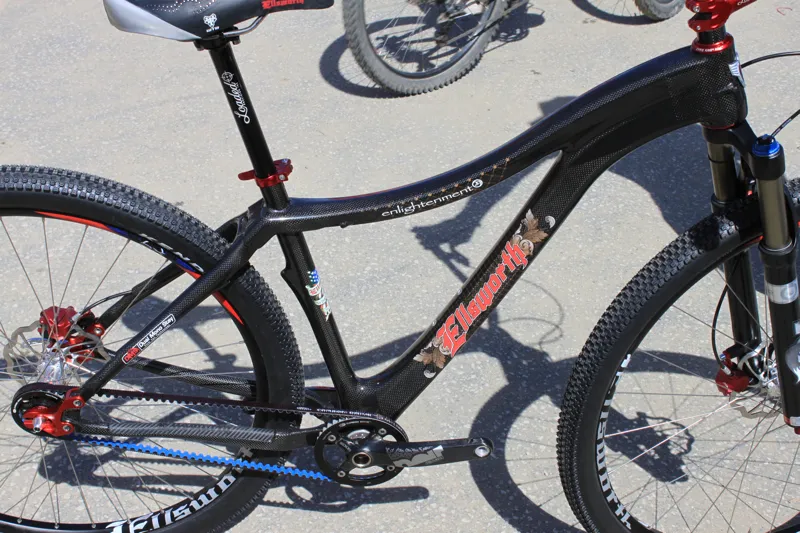
Carbon allows Tony Ellsworth to broaden the designs of his frames
Ellsworth calls his carbon Rare Earth Carbon Fibre. It’s special in the sense of where it comes from, how it’s produced and how it’s made into bicycle frames. “The thing with carbon is that you can’t really do it in the United States cost effectively using a bladder moulding monocoque technology, which is really where carbon shines,” said Ellsworth.
“If I wanted to design with carbon I wanted to really un-limit the palette and take advantage of the monocoque bladder moulding technology. I didn’t want to give up the handmade aspect of our bikes and what Ellsworth is. So it took me a long time to qualify a small factory that I’ve partnered up with down in the south of Taiwan.”
Ellsworth says his contractors are a small company with a well-trained staff of layup technicians who work with new equipment that’s kept supremely clean. He leans on the engineering staff for the layup schedule planning. He likens the strict protocols of their process to those used in the aerospace industry. Ellsworth spoke highly of his partners, but he would not name them. “I don’t talk about my manufacturers,” he said.
Ellsworth ended up in Taiwan, where production is more expensive, because he believes that those who produce in contracted Chinese factories are getting substandard materials and inferior manufacturing quality. As examples, Ellsworth cited the fact that his contractors' factory has a production floor that is painted white, which quickly shows when it’s dirty with black carbon, ensuring that it’s kept clean. He also pointed to the manufacturers' attention to environmental safety.
“Rare Earth Carbon Fibre controls where the material comes from, the training of the layup technicians and the consistency of how it’s laid up,” he said. “When all of our frames come out of their moulds there’s always mould flash … all of the sanding [to remove the flash] needs to be done underwater, the water then needs to be filtered and the carbon particles left over need to be disposed of as hazardous material and we’re doing all of that; in China that doesn’t happen.”
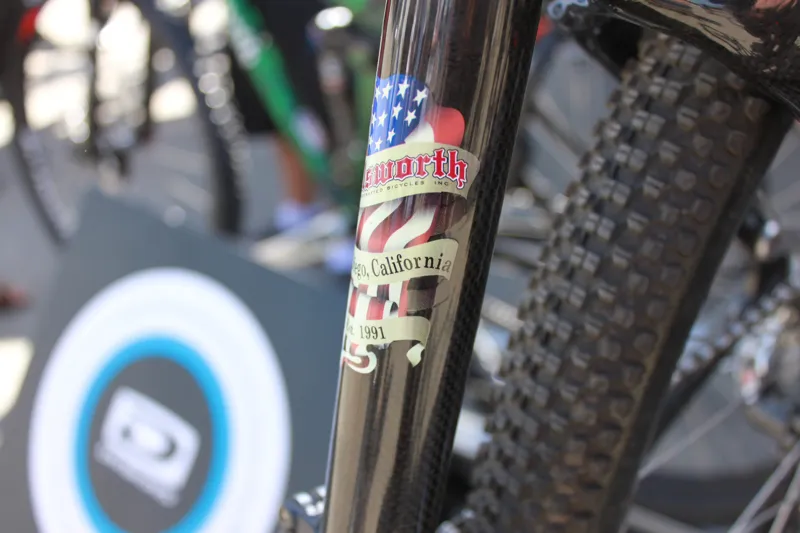
Ellsworth's carbon bikes are designed in California and handmade in Taiwan
He says that Chinese carbon, as a material, is impossible for a westerner to track unless they speak fluent Mandarin and can read shipping documents. The Chinese factories he knows of that produce recreational equipment are dirty and have labour forces that turn over at 100 percent, yearly, sometimes even more frequently, so the skill level of those laying the carbon into the moulds is much lower than in Taiwan.
“I think we’ve made a mistake in this country to ship too much, too fast to China without teaching them the importance of quality control and accountability,” he said. “I mean, I’m on my third iPhone and I love iPhones. I think Apple do a great job; if anybody can put quality control on the ground, you’d think Apple could, but I mean three, three iPhones, come on.”
The carbon is a Japanese made fibre that’s impregnated with resin in Korea and shipped to Ellsworth’s contractors in Taiwan. Ellsworth has paid special attention to each step of the process and says he knows precisely what is happening with the material and the manufacturing at all times.
“I unfortunately spend a bit more time in Taiwan than I want – I miss home – but I can pull up a desk and work there for weeks at a time to maximise the handmade aspect of the carbon fibre,” said Ellsworth. “I qualify all of it [manufacturing process and materials] myself to be used in our stuff; that’s part of being handmade.”
Rare Earth Carbon Bikes
Three of the bikes in Ellsworth’s 2010 line are made in his Taiwanese carbon factory: the Enlightenment 26 and 29ers, and the Coercion road bike. “Carbon is a neat thing because, as a designer, it gives me an opportunity to do some things that I couldn’t do in aluminium or at least couldn’t do very effectively in aluminium,” said Ellsworth.
The Enlightenment mountain bikes have DMS (dual monostay) rear triangles with interchangeable dropouts allowing them to be set up with derailleurs or as single speed bikes. The design of the modular dropouts also opens the drive side junction between the seat and chainstay, allowing for the use of the Carbon Drive Belt made by Gates Rubber.
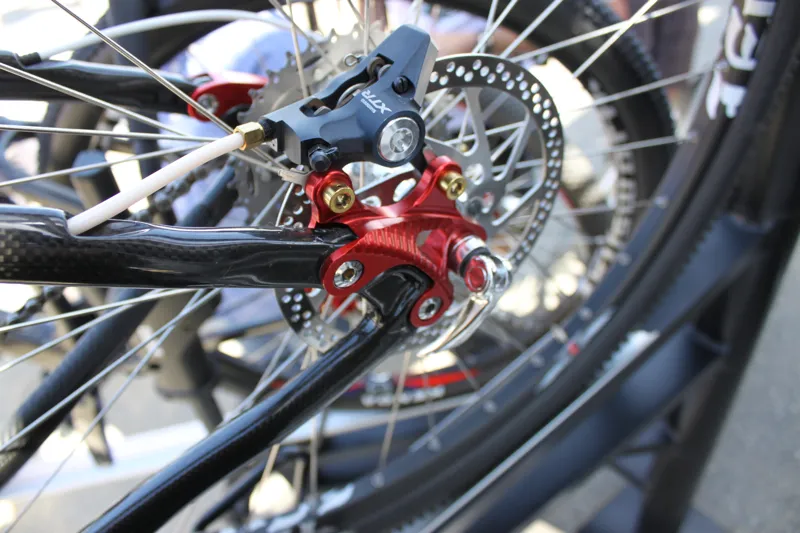
Ellsworth's modular dropout allows multi-gear and single-speed interchangeability, plus belt drive compatibility
The Enlightenment 29er comes in two sizes. The small/medium size offers standover clearance comparable to a standard 16in mountain bike. Ellsworth is also particularly pleased with how it looks.
Nuvinci N360
The Enlightenment hardtails also have the option of using a Nuvinci Continuously Variable Planetary geared hub. Ellsworth was one of the first adopters of this technology with his Ride cruiser bike. The new N360 Nuvinci hub is lighter than the original – 5.25lb compared to 8.51lb – 17 percent smaller and offers a gear range that’s 10 percent wider.
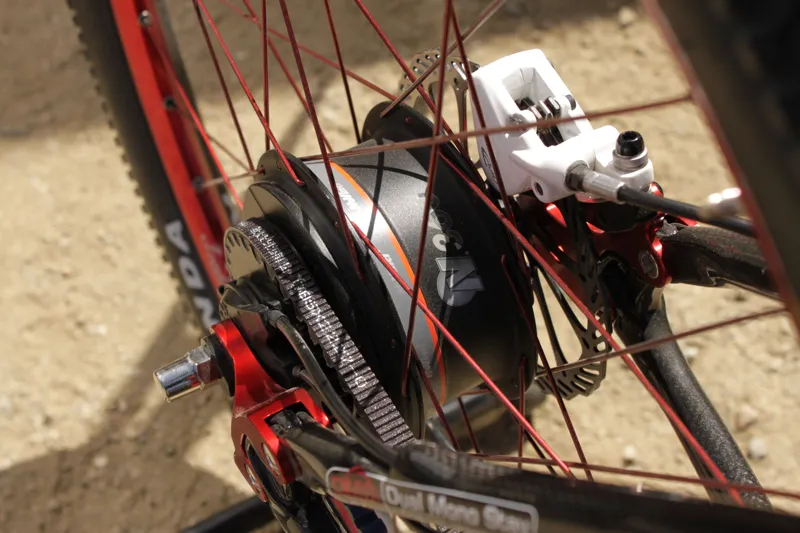
Nuvinci's new N360 with all the bells and whistles; configured with a disc brake and belt drive
With a 36x18 chainring and cog it offers a gear range that spans roughly 25 to 93 gear inches in an infinite range that never needs adjusting, which means that throughout that range you can always find your perfect gear. The N360 is compatible with disc brakes and belt drives. It costs US$399, which is $50 less than the previous model.
